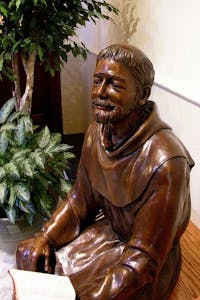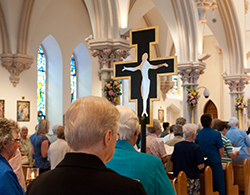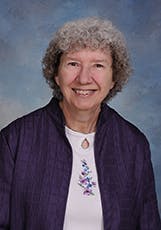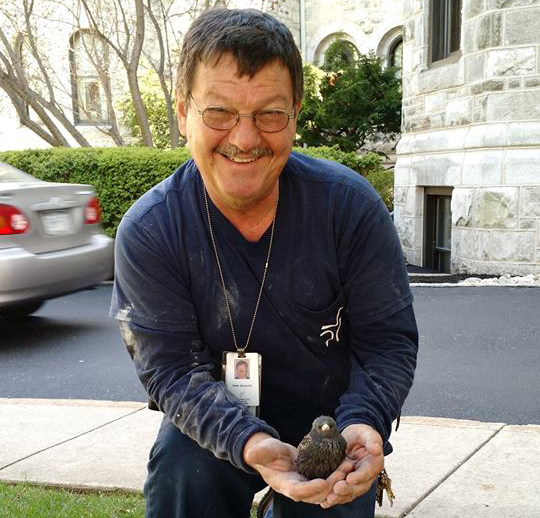 Destined to be the cofounders of one of the largest religious movements to embrace this world, Francis and Clare were born and raised in Assisi, Italy, in the twelfth century. Francis was the son of a cloth merchant, part of the newly formed merchant class. He had everything going for him—his father’s thriving business, the chance to ride off to battle with knights, a personality that made him the leader of Assisi’s young people, and the money to keep them as his friends. He loved people, parties, singing. He also had a call, a conversion that began when he was captured in battle and thrown into prison.
Destined to be the cofounders of one of the largest religious movements to embrace this world, Francis and Clare were born and raised in Assisi, Italy, in the twelfth century. Francis was the son of a cloth merchant, part of the newly formed merchant class. He had everything going for him—his father’s thriving business, the chance to ride off to battle with knights, a personality that made him the leader of Assisi’s young people, and the money to keep them as his friends. He loved people, parties, singing. He also had a call, a conversion that began when he was captured in battle and thrown into prison.
When poor health caused his release, he returned to his parents’ home depressed and confused. Long walks in the countryside of Assisi and an intense listening to God gave him the courage to follow his heart. He began to give of his riches—and his father’s riches—to the poor. He now found little joy in the revelries of his friends and responding to a call in prayer before the crucifix, he put his energies into rebuilding dilapidated churches.
The Assisi folk called him a fool but Francis knew otherwise. He had found God in the depths of his heart and, in so doing, he found himself. Eventually recognizing in the invitation to “rebuild the Church” a deeper meaning, Francis set about preaching the Gospel and teaching people to find God in all of creation, in themselves, and in every human activity. Radiating a profound joy, Francis soon attracted followers numbering thousands in just a few years. With great love, Francis wrote for his followers a simple rule to define their life together.
 Clare was a dozen years younger than Francis and a member of the noble class. Her life was far more sheltered but like her mother, Clare was known throughout Assisi for her generosity to the poor.
Clare was a dozen years younger than Francis and a member of the noble class. Her life was far more sheltered but like her mother, Clare was known throughout Assisi for her generosity to the poor.
At a young age, Clare developed a deep spirituality and was drawn to the teachings and lifestyle of Francis. She met with him on a number of occasions until finally, in the middle of the night following Palm Sunday, she left her parents’ home and found her way to Francis and the brothers.
There Clare made her commitment to God and to the poor and simple lifestyle that Francis preached. Even when her uncles came to remove her from the convent where Francis had placed her, Clare did not waver. Nor did she falter when other women of nobility, including her younger sister, joined her. Like Francis, she cared for her followers, taught them by word and example, wrote for them a simple rule of life, and stood up to bishop and pope for the privilege of living the life to which she felt called.
 Followers of Francis and Clare can be found today in every walk of life and on every continent—still joyful, still seeking a simple lifestyle, still seeking to love and follow the God who lives in their own depths and in all of creation. Theirs is a common vision: identification with the poor, care for creation as a sacred trust, embrace of each person in relationship as sister or brother.
Followers of Francis and Clare can be found today in every walk of life and on every continent—still joyful, still seeking a simple lifestyle, still seeking to love and follow the God who lives in their own depths and in all of creation. Theirs is a common vision: identification with the poor, care for creation as a sacred trust, embrace of each person in relationship as sister or brother.
Like Francis and Clare of the twelfth century, today’s followers of Francis and Clare can be recognized by their lived faith in a God of love, by their deeds of care and generosity, by their care for all creation, and by their daring to live Gospel lives whose values run counter to the culture of their times.







